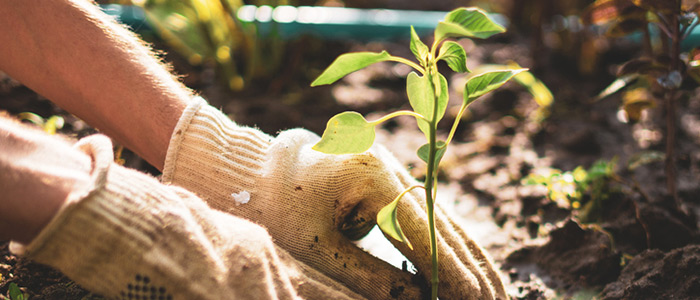A Therapist’s Guide To Surviving The COVID-19 Lockdown
They say it rains 226 days a year in Seattle. Gray clouds from the North Pacific drift over the Emerald City and drop precipitation on the coffee-drinking public. It is a beautiful city, full of green parks and green politics. You can tell the locals from the others—by the use of umbrellas. Out-of-towners clutch winged sticks held aloft to divert the deluge. Seattleites leave them at home, accepting the fact that a little water from above makes their hair look cooler.

In 1995 I waved goodbye to the sun, and began the trek north from California to this “city on the Sound.” Dad and I loaded up the car with my few possessions. Mom baked some cookies for the trip and packed a cooler full of Diet Pepsi and apple wedges. “Now, don’t forget to eat lots of green vegetables and fruits. You don’t want to get scurvy,” she said. I looked down at the bag slung around my shoulder to see her placing a book in one of the side pouches. I slid it back out just enough to see the title: A Mom’s Guide to Surviving College. It had recipes for macaroni and cheese that gave blow-by-blow instructions on how to make the perfect peanut butter and jelly sandwich. As we pulled out of the driveway she stood tearfully watching her youngest son go off to college. We waved, and as the car turned onto the road I felt like I was pulling away from childhood and toward my future. My compass pointed north, and like Jack London, I mushed.
Stepping out into the unknown can be an exciting thing. However, new challenges can sometimes make me feel afraid. As I sit here today, it has become evident that we are faced with a different kind of life transition. Worry and fear have crept into the national consciousness. COVID-19 Information In Redding has infected the hearts of many around the world. While doctors and scientists and politicians work on ways to defeat the microscopic threat, each of us look inward to combat feelings that lie deep inside. Feelings of a lack of control, feeling stuck, and feeling lonely. What will the future hold? Will it look the same as I had grown accustomed to? Will I or someone I love get sick and die? These are all questions that can have a significant impact on our mental health.
Managing these feelings, and coping with the stress that they produce will become increasingly important as the next few weeks and months draw out. We are pulling out of the driveway of what is known and comfortable and heading toward a new reality that is unpredictable. So, as I start down the road stocked with beans and rice and boxes of Hamburger Helper, I would like to share with you a “Therapist’s guide to surviving the Lockdown.”

The River and the Reservoir
The first thing to remember is that your feelings are valid. It is perfectly reasonable to feel uneasy in this time. Acceptance of your emotional reality will help you move through this experience with your mental health intact. Denial of these feelings will only add pressure and weight to the reality that you face. Imagine your feelings are like a river. It flows through you. It touches you. It impacts you. But then, it sails on down the river. On the contrary, a reservoir holds onto the water. The water dams and pools up, creating more volume for you to hold.
Tip: When you feel an emotion like sadness, acknowledge the feeling. Realize that this feeling will not last forever. It will pass, and another feeling or thought will replace it. We think all the time. It is just what minds do. One thought comes. It stays for a while, and then it goes. Another thought comes behind it, and so on. Allowing yourself to experience the emotion authentically will allow you to process it, and move on.
Don’t be surprised if you have some surprising emotions. Each of us will process this crisis differently. One writer described this as grief processing. We are grieving the loss of loved ones yes, but we may also be grieving the loss of a job, the loss of routine, or a loss of security.

Routine of Distraction
It is important to find ways to keep a regular routine. Finding a sense of normalcy is a critical part of maintaining calm and maximizing your effectiveness. If you normally wake up in the morning at 7, continue to do so. Get up. Take a shower. Get dressed, as if you had something to do that day. Develop goals and projects for each day. Benchmarks to measure what you have accomplished. This will help you limit the sense of one day flowing into the next with no real structure.
Mix in scheduled entertainment and ways to distract yourself from your situation. Mindful practices like cooking, gardening, and exercise are helpful. Ask yourself, what activities make me feel normal?
Tip: Write it down! Making lists can assist you in organizing these activities, but it can also give you something to look back on at the end of the day as evidence of what you did. Warning: Don’t judge yourself if everything doesn’t get done. There is grace in the midst of this. In other words, be kind.

Have Courage
“Courage is being very afraid, and saddlin’ up anyway.”
– John Wayne
When I was a kid, I loved imagining I was Indiana Jones on an adventure to defeat the Nazi’s in a race to a mythical artifact. I dreamt of commanding the USS Enterprise against the Romulans like Captain Kirk. I visualized myself as Han Solo piloting the Millennium Falcon toward the Death Star to save Luke Skywalker. I, of course, was only a child. The world I lived in was scary, and I was often afraid. In those times, I would ask myself, ‘What would Han Solo do?” In a sense, even though they were fictional characters, I was borrowing their courage for a little bit in order to get through. Eventually, I realized that their courage was actually mine all along.
The bible talks about how persevering through hardship produces character (strength), and that strength produces hope. The competing ideas about our future are fear and hope. Which one I choose to focus on will have a big impact on how I feel and act.
We will get through this. There will be another side. If you have family that are staying with you, enjoy them. Use this time to grow closer together. Resist the urge to go to your own corners and isolate. Engage, talk, do a puzzle, or watch Jeopardy together. If you are living by yourself during this time, reach out to others on social media, pick up the phone and call a friend, or find opportunities in the community for connection. You are not alone. Isolation is depression’s best friend.







